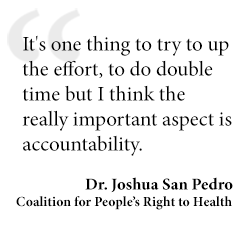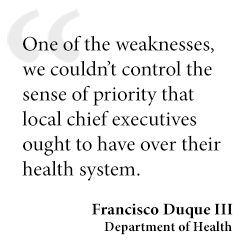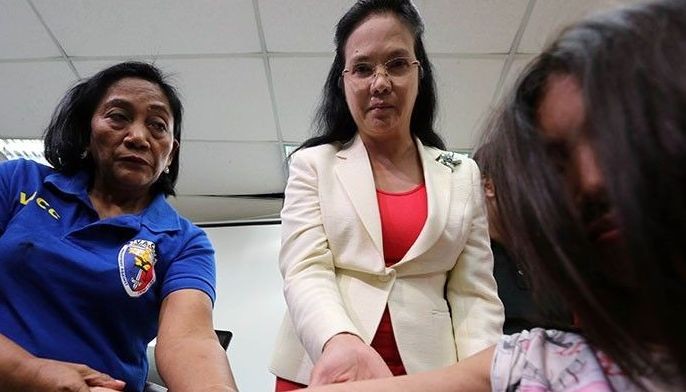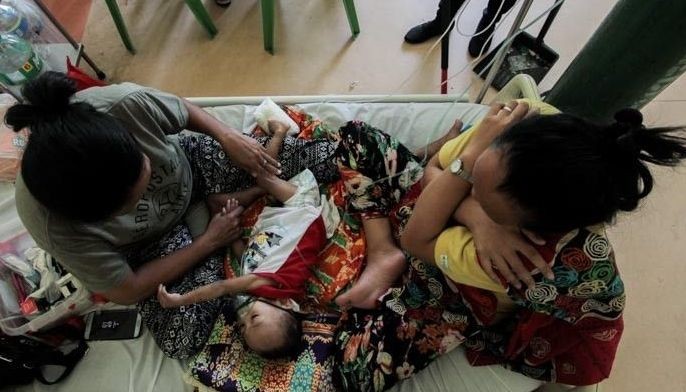Beyond the Dengvaxia scare: Complacency, devolution of health system also account for measles outbreak
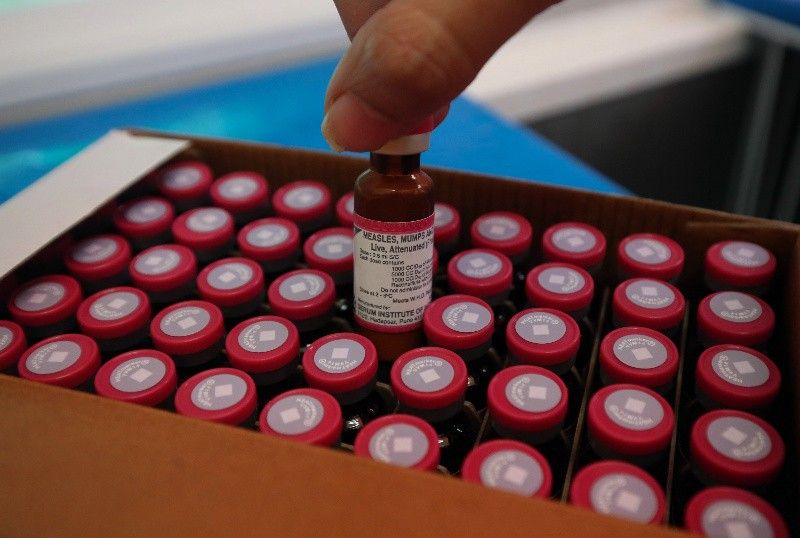
MANILA, Philippines — The number of measles cases across the Philippines soared more than a year after pharmaceutical firm Sanofi Pasteur disclosed that Dengvaxia—the first anti-dengue vaccine to be licensed—may cause “severe” dengue if given to those without prior exposure to the disease.
Other countries simply dealt with Sanofi’s announcement by updating labels and guidelines. But in the Philippines, the news led to a blame game and a breakdown of public trust as soon as the Public Attorney’s Office—an agency that provides free legal assistance to the poor—began directly linking deaths of at least 105 individuals to Dengvaxia despite no solid evidence.
Even the Department of Health said the low vaccination coverage—which led to measles outbreaks in different parts of the country—could be attributed to the erosion of trust in immunization stoked by the anti-dengue vaccine controversy.
Measles is a highly contagious disease that can be easily prevented by two doses of a vaccine. This has saved almost a million lives every year over the last two decades.
But since the start of the year, at least 261 deaths were recorded among the 16,349 cases of measles across the country. The latest figure recorded in so short a period was higher than the 15,599 cases in the whole of 2018.
The disease has spread mostly among school children whose parents declined to get them immunized. In the Philippines, more than half (57 percent) of those who contracted measles are children aged five years and below, according to the latest situation report of the United Nations Children’s Fund and the World Health Organization.
The Philippines is among the countries that saw the largest increases in measles cases from 2017 to 2018, the UNICEF said in a release as it warned that cases of measles worldwide are surging to “alarmingly high levels.” The spread of measles is happening in poorer countries, states in conflict and wealthy nations where vaccination coverage has historically been high.
The flare up in cases of measles worldwide is happening against a backdrop of rising global concern about vaccine hesitancy—or the reluctance or refusal to vaccinate despite the availability of vaccines. The resurgence of the disease in some countries has been linked to medically baseless claims linking measles vaccine to autism, spread by members of the so-called “anti-vax” movement on social media and in some religious circles.
Henrietta Fore, executive director of UNICEF, said that aside from vaccine hesitancy, poor health infrastructure, civil strife, low community awareness and complacency have led to outbreaks in both developed and developing countries.
“Almost all of these cases are preventable and yet children are getting infected even in places where there is simply no excuse. Measles may be the disease, but, all too often, the real infection is misinformation, mistrust and complacency,” she said.
Now that the DOH is in the middle of conducting a mass immunization campaign with aim to vaccinate about 12 million people against the disease by March, do the agency’s efforts come too late?
Failures
Dr. Joshua San Pedro, co-convenor of the Coalition for People’s Right to Health, said the health agency’s current efforts “will do for the next measles epidemic” but not for the ongoing outbreaks.
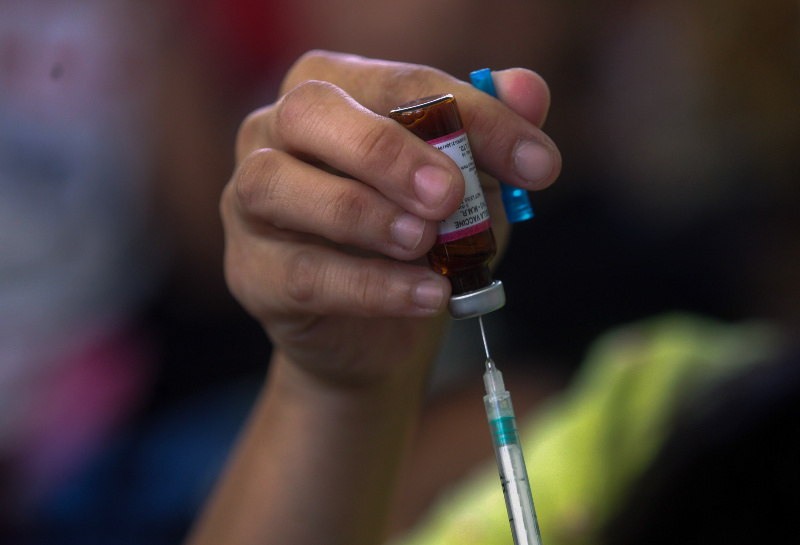
Measles is a highly contagious disease that can be easily prevented by two doses of a vaccine. This has saved almost a million lives every year over the last two decades.
“It’s one thing to try to up the effort, to do double time but I think the really important aspect is accountability,” San Pedro told Philstar.com, noting that the DOH should accept that there have been shortcomings in the government’s vaccination programs and health service delivery in recent years.
He stressed that the country’s immunization levels had already been low even before the onset of Dengvaxia fiasco.
Figures from the UNICEF showed that the proportion of children aged 12 to 23 months who received all basic vaccinations dropped from 77 percent in 2013 to 70 percent in 2017. The DOH said that last year, the vaccine coverage fell to only 40 percent.
The figures are way below the target of 95 percent needed to assure herd immunity, or the protection of society against the spread of contagious diseases.
“The fact that we’re reaching below 95 percent as early as 2010, 2014, this already set up the possibility of an impending measles epidemic,” San Pedro said.
He added: “And what happened with Dengvaxia, it drastically reduced the [vaccination rates] even more. It just served as a starting point, in which the situation became ripe for an epidemic because vaccination [rates] went down further.”
Health authorities said vaccination rates in the country have been declining for years but they also pointed out to the Dengvaxia scandal.
A study by the London School of Hygiene and Tropical Medicine last year on 1,500 participants showed a significant decline in vaccine confidence among Filipinos—from 93 percent “strongly agreeing” that vaccines are important in 2015 to only 32 percent in 2018 following the fiasco.
Perceptions of vaccine safety dropped to only 21 percent last year from 82 percent in 2015. Even the confidence in the effectiveness of vaccines plummeted from 82 percent in 2015 to 21 percent in 2018.
Health officials had also said there was no problem with the supply of vaccines in the country and the capability of health workers. They blamed in part the lack of education and time of parents to bring their children to health centers and have them immunized.
The case of Dumagat communities
The co-convenor of the CPRH, moreover, stressed that the shortage of health workers and health services in communities also account for why the highly preventable but potentially deadly diseases like measles continue to increase.
San Pedro cited the measles outbreak that has struck the Dumagat communities in Rizal and Quezon. He said health workers only visit these indigenous people communities once or twice a year.
“It just reveals that there are so many problems in our health system aside from the problem in vaccination, which made the children susceptible to these infectious diseases,” he said.
The measles outbreak, which started during the second half of 2018, claimed more than 67 lives last year, the Philippine Task Force for Indigenous People’s Rights said.
The TFIP lamented that indigenous peoples have been marginalized and deprived of affordable, appropriate and good quality health services.
“Being vaccinated is a rare and lucky circumstance for indigenous children as their communities are rarely visited by health care professionals. Government medical facilities are usually inaccessible in remote indigenous communities,” the organization said in a statement.
Complacency of parents and the government
But for public health expert Dr. Susan Mercado, the DOH is not the only one to blame.
In an interview with Philstar.com, the deputy secretary general of the Philippine Red Cross Centers for Health in Humanitarian Action stressed that the clusters of measles around the world in the recent years are indications that people have become complacent.
According to UNICEF, 98 countries reported more cases of measles in 2018. Ten countries—including the Philippines—were responsible for more than 74 percent of the total increase in 2018.
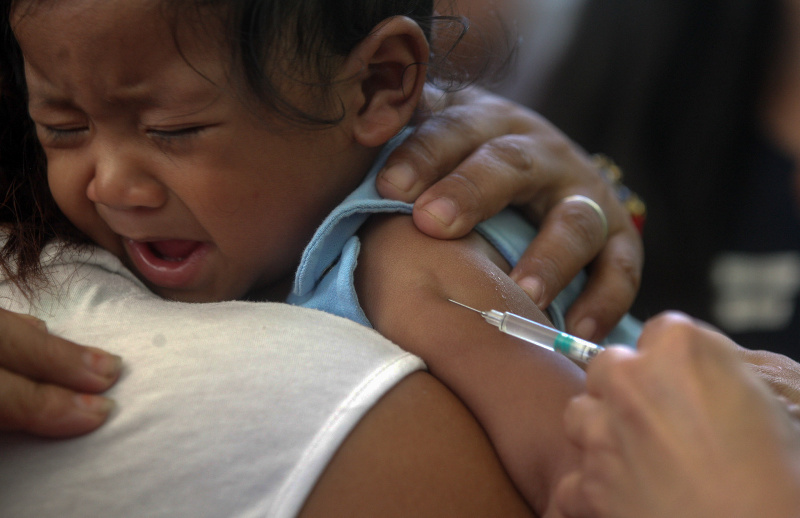
Figures from the UNICEF showed that the proportion of children aged 12 to 23 months who received all basic vaccinations dropped from 77 percent in 2013 to 70 percent in 2017.
“It’s not just the Department of Health; it’s [also] the society and government,” Mercado said.
“The situation is that one: there are many kids who are not vaccinated and they are not vaccinated because parents are not afraid anymore of these childhood diseases because many of them have been controlled and we don’t see them anymore so the parents think: ‘It’s okay because nobody gets sick of these diseases anymore so why should we vaccinate?’” she added.
Mercado furthered: “The second one is from the point of view of the government. Because they’re not seeing a lot of these cases, it’s not a priority to vaccinate and we knew already in the public health community that by about 2009 or 2010, the coverage for measles was already dropping worldwide.”
But amid the finger pointing, what the public needs right now is the accountability of health officials, San Pedro said.
“To rebuild the confidence, aside from meeting the problems in demand and shortcomings in vaccination and health system, one thing that is necessary is the accountability of DOH officials for these inefficiencies and problems. When the DOH admits that there have really been shortcomings and that there are people made accountable in the situation, then the trust of parents will return,” he said.
From national to local to national?
Mercado, who is also the special envoy of the president for global health initiatives, suggested that the immunization program should be nationalized. Under this proposal, health vaccinators should be under the national agency, not under the local government.
She stressed that having people on the ground who directly report to the DOH are vital in controlling infectious diseases and outbreaks.
“So we need to seriously think about having a national immunization program with national workers. That’s all they do, they’re just working on the national immunization program,” she said.
Mercado said that aside from the immunization program, the program for family planning and reproductive health as well as the epidemiology and surveillance should be also under the national agency, not local governments.
Decentralization has often been linked to the fragmentation of the health system in the country since the adoption of the Local Government Code in 1991. Prior to this, however, there were already efforts to decentralize heath services, such as the creation of regional health offices in 1958, 1972 and 1985.
Under the LGC, local governments have the autonomy and responsibility to deliver local and basic government services. Provincial governments are responsible for providing secondary hospital care, while cities and municipalities are mandated for maternal and child health, nutrition services and maintenance of city, municipal and barangay health units.
The DOH, on the other hand, has the mandate to set national policy agenda, technical standards and guidelines on health.
In an interview on CNN Philippines last month, Health Secretary Francisco Duque III said he will propose the transfer of control of health services from LGUs to the DOH. He lamented that devolution of health system to the local governments causes delay in the implementation of services and that not all local executives prioritize health services.
“One of the weaknesses, we couldn’t control the sense of priority that local chief executives ought to have over their health system. If it’s not their priority, then that is also explaining why (there is low coverage),” Duque said.
Mercado believes the DOH is working hard to manage the crisis but the big chunk of success lies on the response of local governments.
“We should think that this is really not just the Department of Health but this is the local health systems that need to be reactivated. I think the DOH is slowly but steadily being able to manage the situation but we are now looking to local government to do their part because they need to mobilize the workers. The vaccines are actually with them so they need to step up the vaccination,” she said. — Photos by STAR/KJ Rosales
- Latest
- Trending






